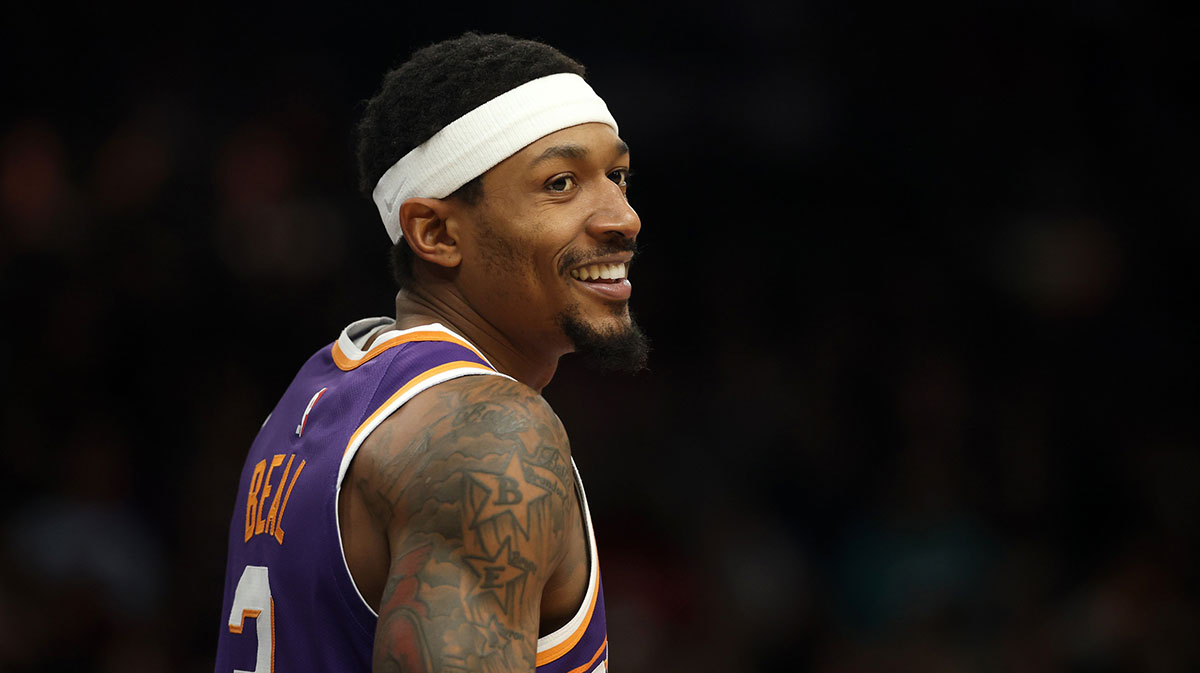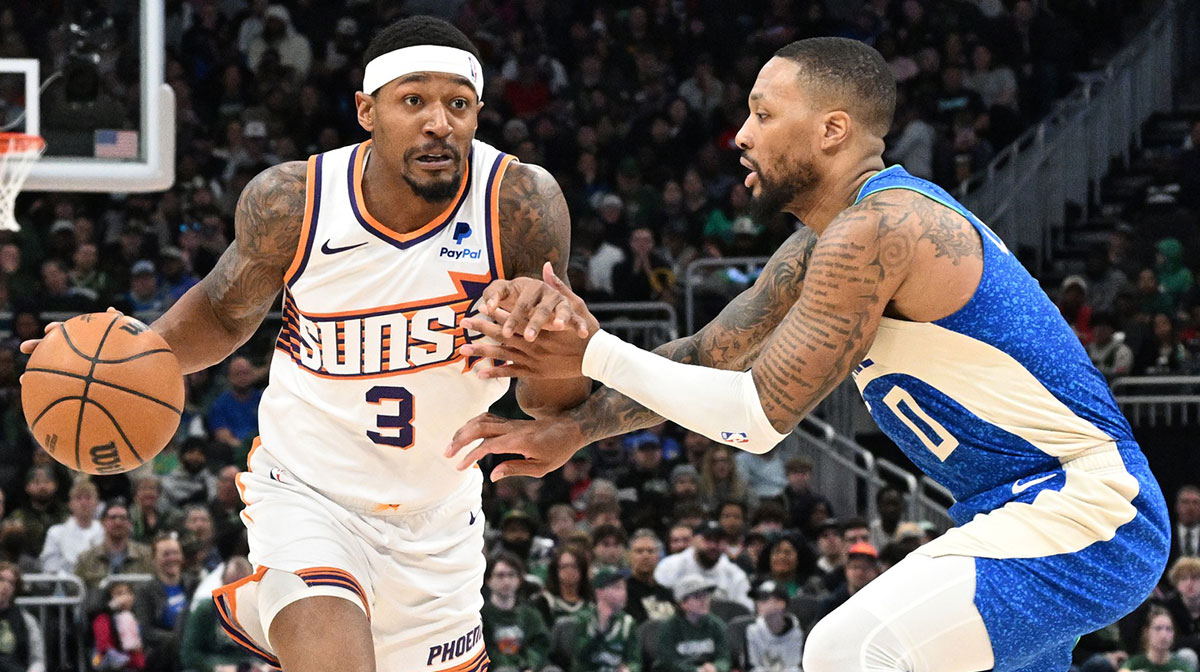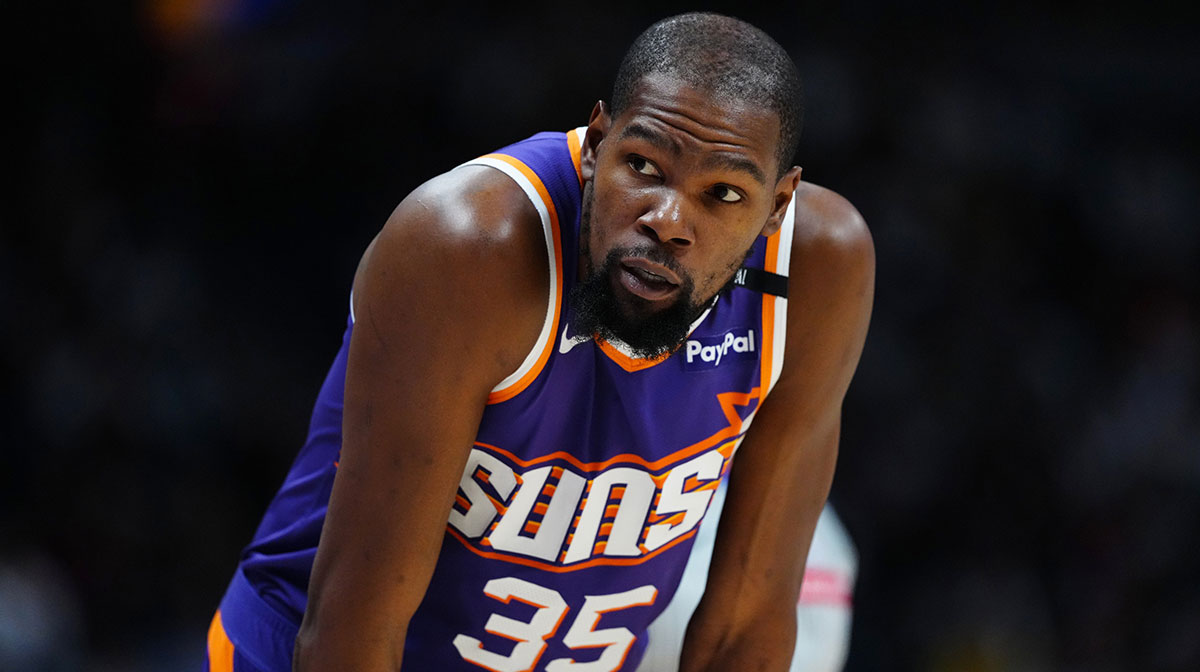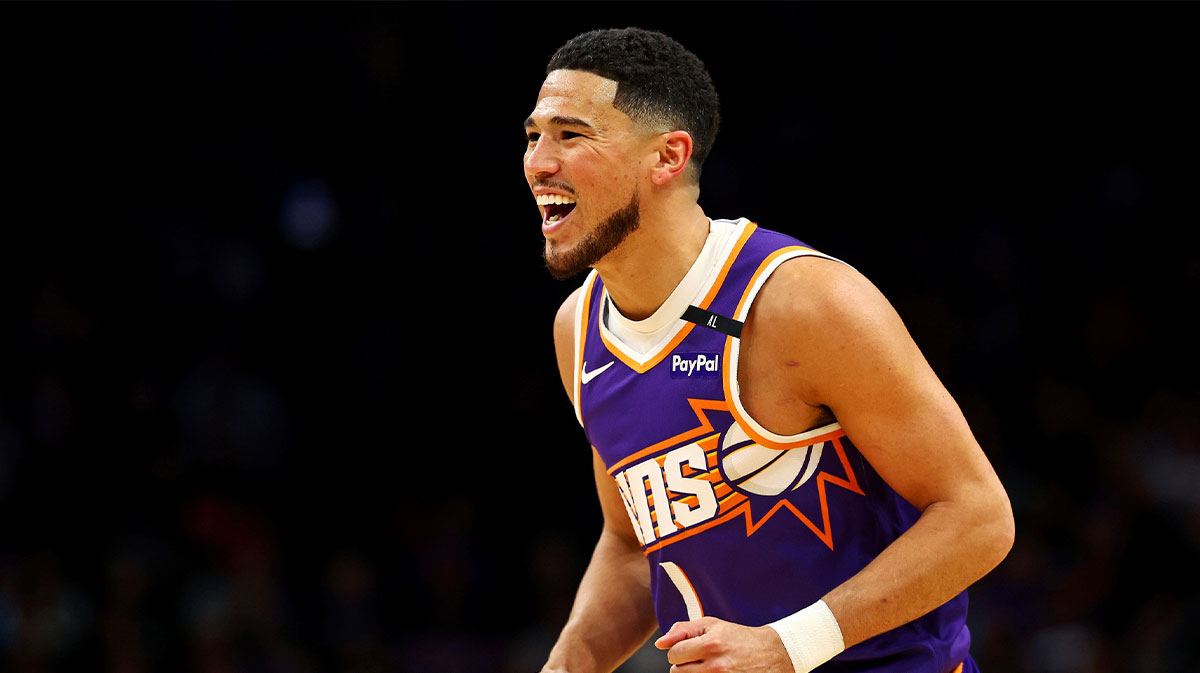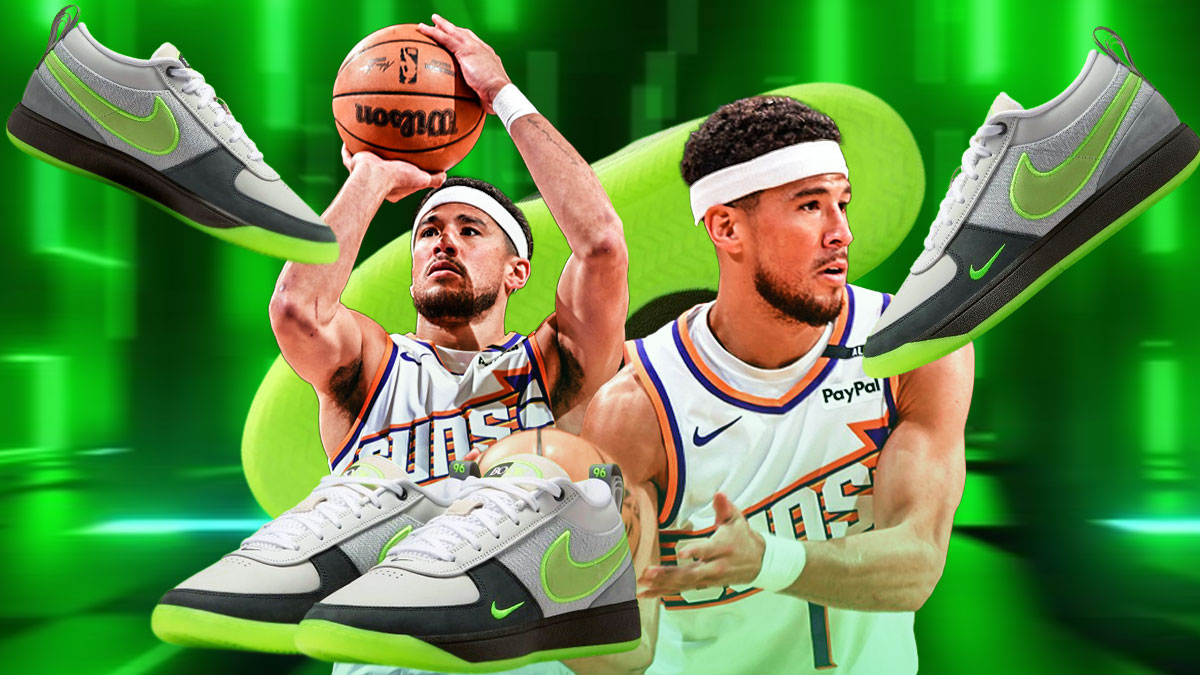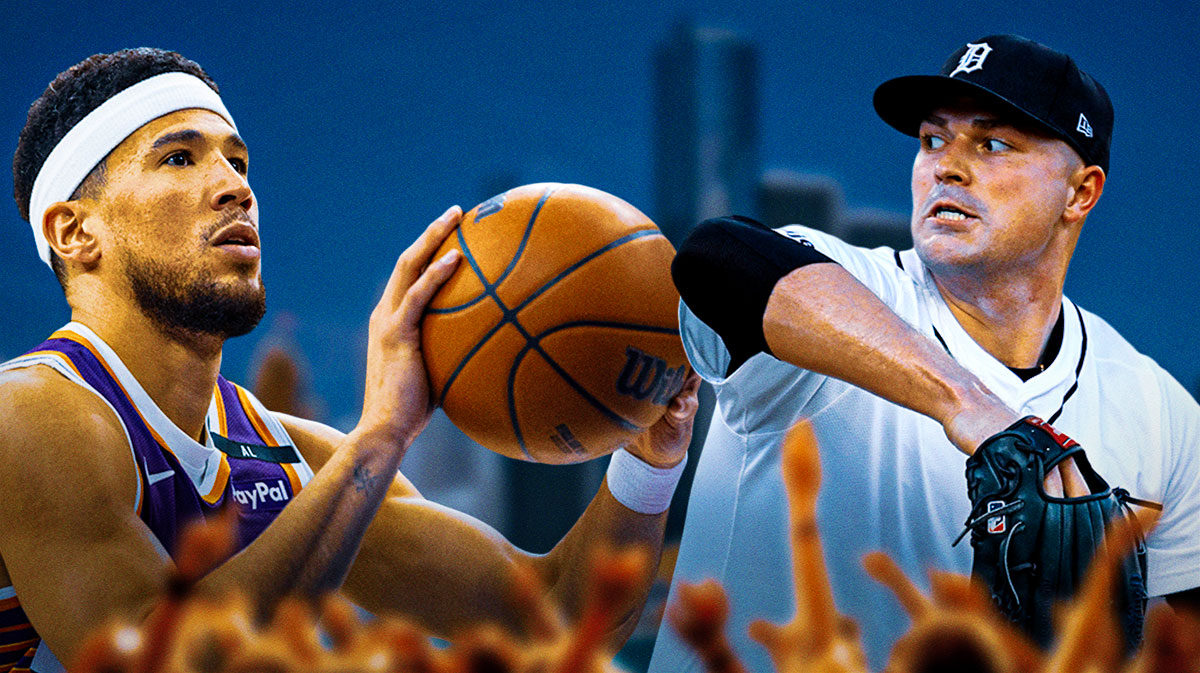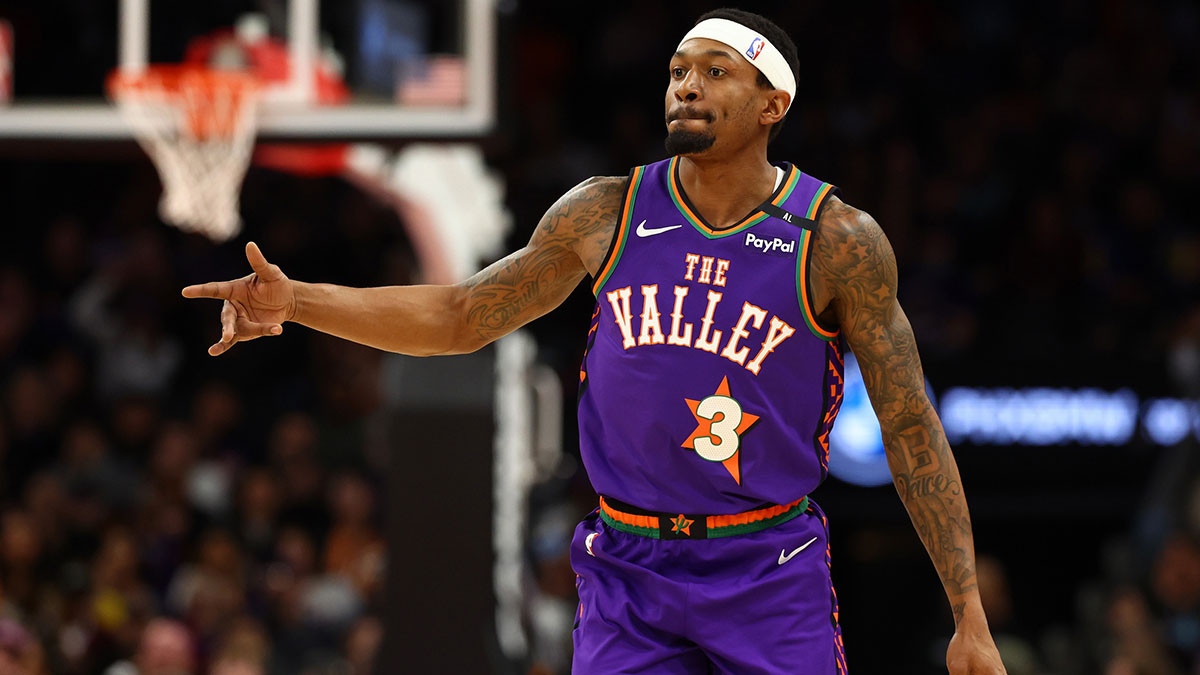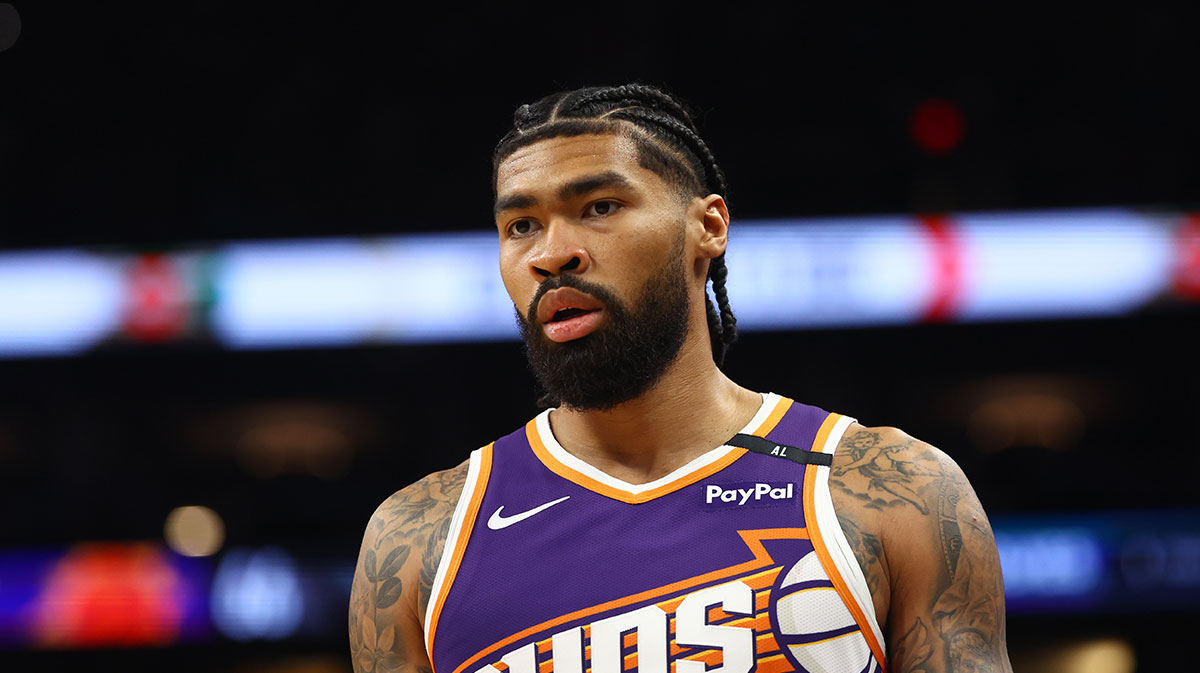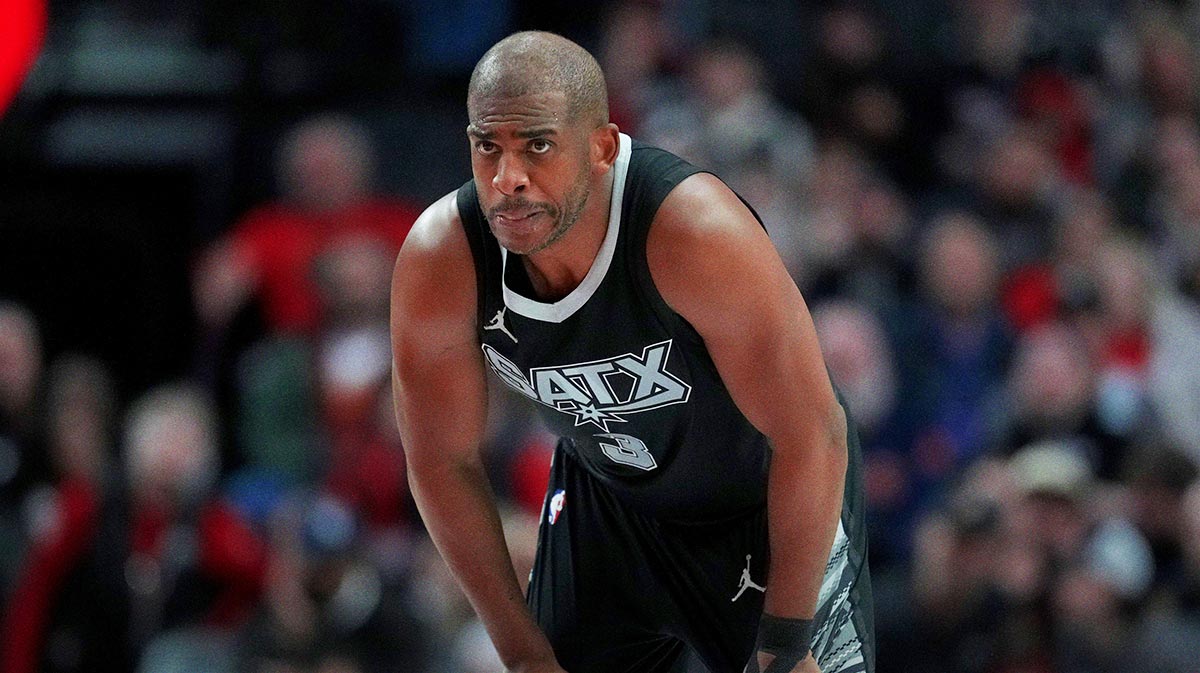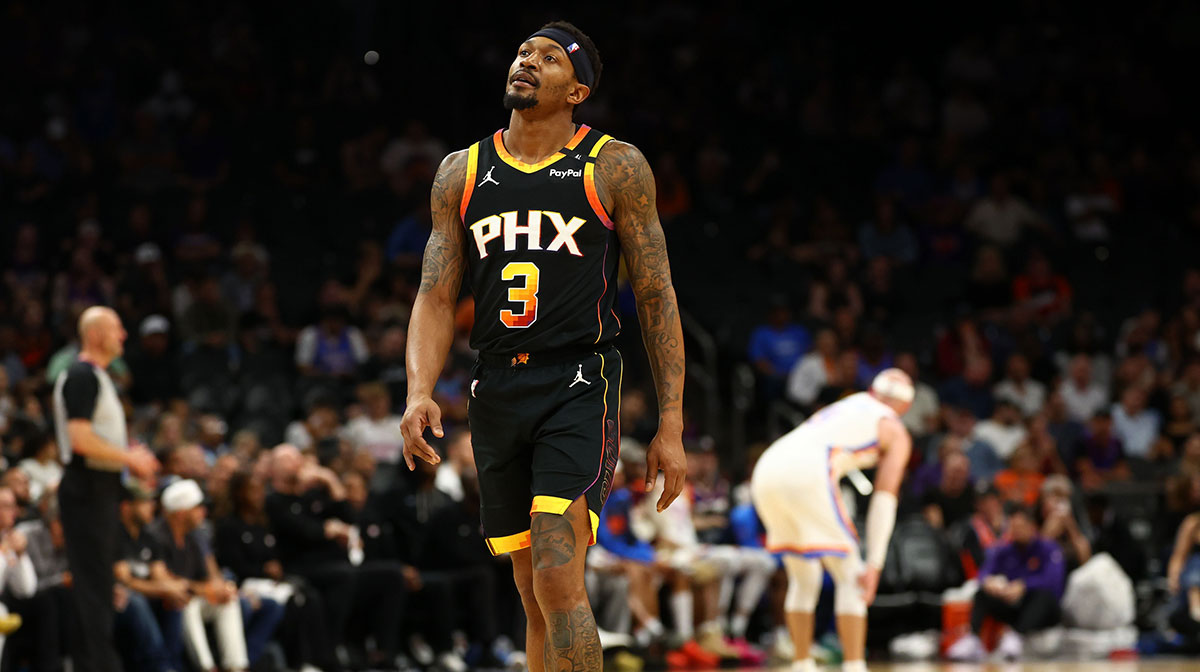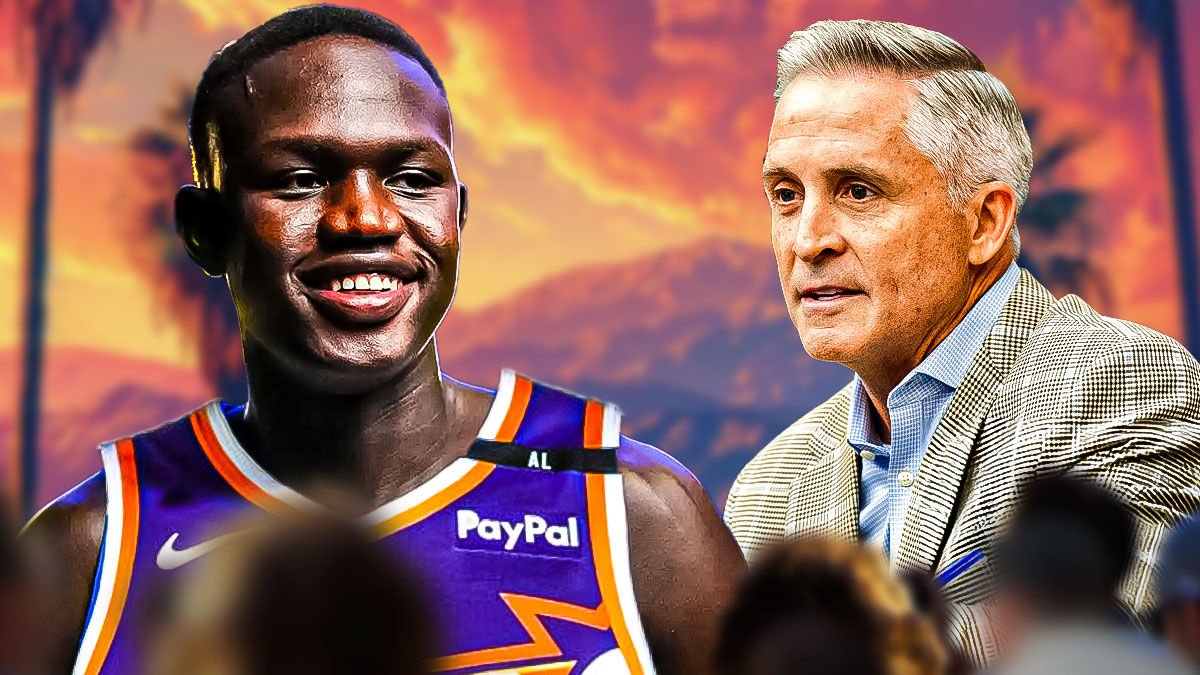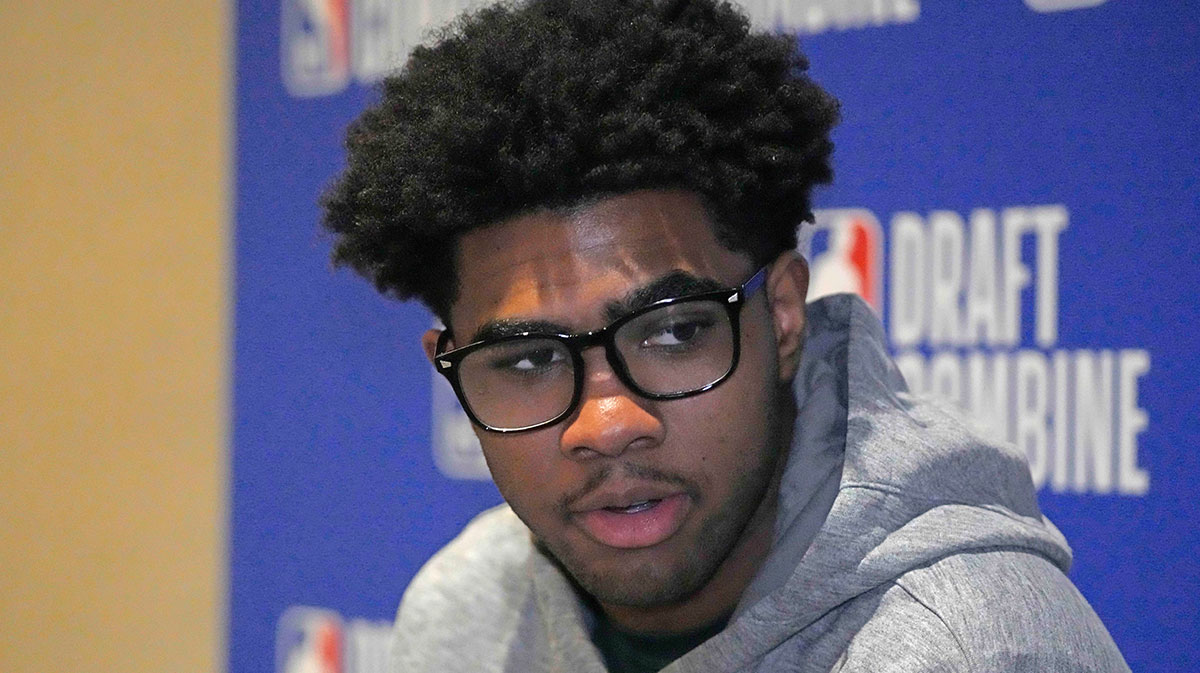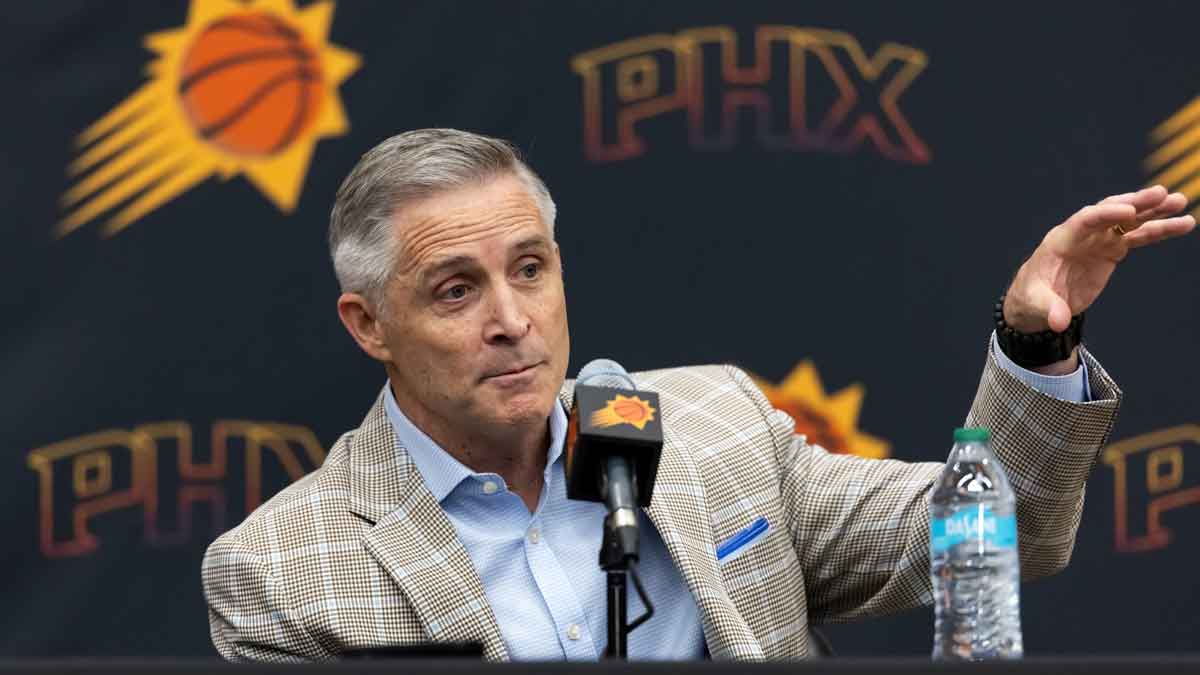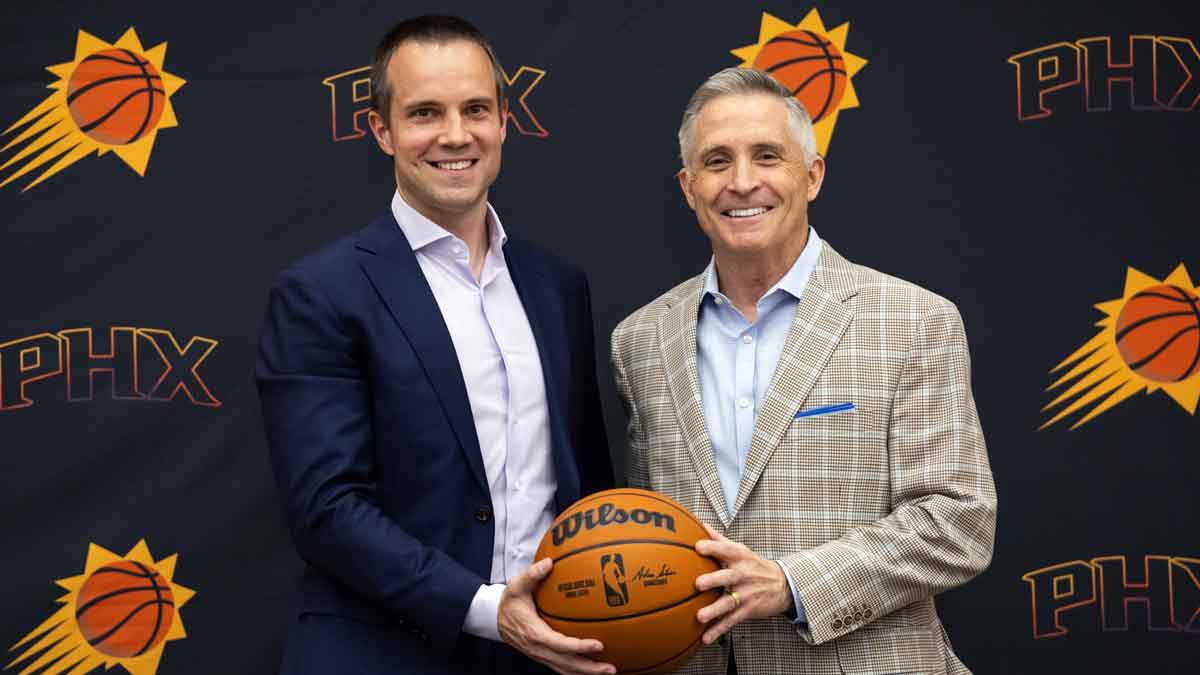Season Autopsies: San Antonio Spurs | Phoenix Suns | Dallas Mavericks | Sacramento Kings | Denver Nuggets | Milwaukee Bucks | Miami Heat | Minnesota Timberwolves
Amidst the many repetitive (and sometimes stupid) debates around tanking in the NBA, there's one rule the masses can agree on: it's okay to suck as long as you aren't ugly about it.
From an aesthetic standpoint, there's a big difference between a team like the Atlanta Hawks and the Phoenix Suns. The Hawks aren't good but they still play hard and try to execute in Mike Budenholzer's system. Then there are the Suns, who went viral earlier in the season because of their complete lack of expletives to give. What even is this?
https://youtu.be/GGVD5slAwYk
One coaching change, a psuedo-star trade, a plethora of injuries, and a bunch of losses later, and the Suns find themselves in familiar territory: at the bottom of the standings with a high lottery pick coming soon.
They hold the league's worst record (19-58) behind the league's worst offense (100.6 offensive rating) and the league's worst defense (110.7 defensive rating.) They play fast (second in the league in pace), turn it over a ton (26th in turnover rate), shoot poorly, then give up bundles of buckets on the other end. By no objective measure is this team good, and it'll take a system overhaul on both ends before that changes in any meaningful way.
Yet, there's a silver lining. The Suns possess young talent. There are intriguing prospects with diverse skill sets on the roster. They aren't ready to contribute to winning basketball yet, but the hope is with natural progression and an actual structure, the Suns may eventually grow into something beyond a team whose schedule you look up so you know who to start on your fantasy team.
Devin Booker is evolving

The first step to exiting the rebuilding stage is finding a foundational star. Phoenix did that by nailing the Devin Booker pick. The young sniper isn't just Phoenix's best player; he has bonafide star potential and projects to be a top-three player at his position sooner than later. Despite being in the worst situation in the league, Booker has shown legit three-level scorer flashes in each of his three seasons in the league. Statistically, his progression has been rapid and sizable.
- 2015-16: 24.2 points (42/34/84 shooting split), 4.6 assists, 4.3 rebounds per 100 possessions
- 2016-17: 30.3 points (42/36/83), 4.7 assists, 4.4 rebounds per 100 possessions
- 2017-18: 34.5 points (43/38/88), 6.5 assists, 6.3 rebounds per 100 possessions
The list of players to appear in 50 games and average 34-6-6 per 100 possessions at 21 or younger is short. There's Booker, then there are a pair of one-namers you may have heard of — LeBron and MJ.
We know about Booker's scoring exploits at this point. Off the ball, you have to keep tabs on him at all times or run the risk of being lit up from deep. Give him the rock and he'll combine a shifty handle with his silky-smooth jumper to cause nightmares for opposing players. He can pull-up for jimmies on a dime, contested or otherwise. He's gained more craft in the pick-and-roll; Booker can snake around picks for jumpers at the elbow, take an extra dribble to get his floater off, or commit fully to the drive and finish at the hoop.
Booker's biggest leap this season comes as a distributor. The game has started to slow down for him. More specifically, he's shifted from a reactor to a manipulator. That's the kind of thing that separates great scorers from great offensive players.
Making a kickout pass when the entire defense collapses, or making the “one more” pass to the corner in a tic-tac-toe sequence are relatively simple reads. Booker has been able to do that since he's entered the league. The video below is what should have Phoenix fans salivating. Watch how Booker creates a bucket for Tyson Chandler out of thin air.
The Lakers attempt to ICE the pick-and-roll, so Chandler smartly flips the pick to shake Booker free. From there, Booker could step into a “meh” pull-up jumper or go to his stepback, but he decides to hit Alex Caruso with a hesitation dribble before attacking. He blows by Caruso, forcing the big to step up in containment. Jordan Clarkson moves ever so slightly to his left to track Mike James in the corner, leaving Chandler even more open underneath. Booker finished the job by throwing the lob to Chandler.
Not playing with a pass-first point guard (or even a competent one sans Eric Bledsoe) forced more responsibility into Booker's hands than you'd like in an ideal world. His efficiency has been underwhelming in part due to shot selection, but also because he's been the only reliable shot-creator for most of his young career. Though that isn't an ideal situation in theory, those reps have helped him grow faster than anyone anticipated when he was drafted.
(It's going to great when Booker doesn't have to do everything and can afford to choose his spots. And scary — very, very scary.)
Josh Jackson filling in the blanks

Drafted with the fourth overall pick of last year's draft, Josh Jackson was seen as one of most versatile players in the pool. His shooting was questionable to say the least, but he flashed four-tool ability at Kansas. He had athletic finishes in his bag, showcased passing chops, rebounded well for his position, and could switch across multiple positions on defense. Correct the shooting, and the template for a modern do-everything wing was there.
His rookie year did not start off well. Before the All-Star break, Jackson was averaging 10.7 points on 39.7 percent shooting from the field, 25.7 percent shooting from deep, and a 58.8 percent clip at the free throw line. He had more turnovers than assists, and his defense was typical of a rookie: lots of activity, some pretty highlights, but mostly a montage of blown assignments.
You typically hear about rookies having to adjust to NBA speed and how it takes time for guys to get used to how quickly everything happens. Jackson was almost the opposite; many times, he'd be playing at 110 mph when he should be going 70.
His frenetic game hurt him as a finisher. He only converted 55.5 percent of his shots at the rim before the break. That ranked 55th among the 63 players that averaged at least 4.0 attempts at the rim. He struggled with angles earlier in the year, which led to some bad misses at the rim.
His percentages have shot up since the break. He's converting a shade over 63 percent of his rim attempts on increased volume. His aggressiveness, coupled with newfound efficiency inside, has led to a spike in scoring. His 17.7 scoring average ranks second among rookies behind the electric Donovan Mitchell (22.6). Like Booker, the increase in reps will likely pay dividends in the long-term. We're already starting to see him get more comfortable offensively, shooting woes notwithstanding.
Jackson still has plenty of work to do defensively. It's hard enough for young guys to get accustomed to team defensive principles. Once you add in the fact that nobody in Phoenix seems to know what they're doing, it's hard to expect much of anything. Still, Jackson's athleticism and ball instincts jump off the screen at times. He hounds smaller guards and has the tools to at least hang with bigger wings and most non-centers.
He's more comfortable guarding smaller than bigger. When he's dialed in, point guards have trouble shaking Jackson because of his length and lateral quickness. Even when he's beat, his never-ending motor keeps him in plays. Below, watch how he single-handedly erases this Jordan Clarkson-led pick-and-roll.
The initial “screen” from Jeff Green puts Jackson behind the play. Instead of trying to recover to Clarkson (and potentially leaving the pass to the rolling Green open), Jackson cuts back towards Green, anticipating the pocket pass. Sure enough, Clarkson tries to thread the needle, and Jackson swipes in to snatch the pass before Green OR Dragan Bender could diagnose what was coming.
Phoenix has to hope Jackson can become a perimeter stopper for them. First and foremost, somebody on this team has to be able to play defense. Beyond that, with Booker as their unquestioned offensive hub, he'll need someone to take defensive burden off of him so his talent can be maximized. Jackson has the physical profile and the mental chops to become that guy.
Nailing the “others”

Beyond Booker and Jackson, there doesn't seem to be a surefire “third” to form a youthful big three. TJ Warren comes the closest, a bully-ball ‘tweener who operates as Phoenix's goalline running back.
The former NC State stud has flown under the radar this season. He's currently one of nine wings averaging at least 19 points and five rebounds, and he's done so on an efficient clip from the field (49.8 percent). He ranks in the top half of the league in five of Synergy's play types (transition, pick-and-roll ball handler, post-ups, cuts, and offensive rebounds), mostly because there's almost no stopping him once he gets a head of steam. He's rugged yet smooth, a combination that confuses and leaves defenders helpless when he's in his zone:
Only three wings — Giannis Antetokounmpo (9.4), LeBron (8.6), and Tyreke Evans (7.2; assuming he's still alive) — average more shots at the rim than Warren (6.7). His 66.7 percent clip ranks ahead of (super)stars like James Harden and Blake Griffin, and slightly below bigs like DeAndre Jordan and Karl-Anthony Towns.
Yet … the jumper is a problem. His 40.8 percent clip from mid-range is fine, but it's not good enough for his diet of jumpers a productive part of a offense. A 22.2 percent mark from three just doesn't cut it. In theory, you can alleviate that by playing him at the 4, but that ends up limiting time for one of Dragan Bender or Marquese Chriss. He's better than both of those guys, but his comfort shouldn't be higher on the list than finding out exactly how good those players are.
Warren does make Phoenix's offense better — 102.0 offensive rating with him on, 98.6 with him off — but how much does making the 30th ranked offense play like the 27th ranked offense really matter? Warren doesn't make much of an impact defensively, though nobody really does on this team. Still, his instincts are lacking on that end, and at some point, Phoenix has to make a conscious effort about correcting their abomination of a defense.
Warren transforming into a competent three-point shooter or making a leap defensively would change his ceiling. Maybe he goes the Tobias Harris route and booms a little later. As of now, he projects as a super sub on a good team. The Suns clearly aren't there yet. It's odd to argue a 24-year old doesn't fit the timeline of a rebuilding team, but that may end up being the case for Warren.
Neither of Phoenix's project big men, Marquese Chriss and Dragan Bender, have performed up to par in their young careers. The pairing have combine to average 13.3 points and 9.3 rebounds this season.
Perhaps no player is more affected by the lack of on-court direction than Chriss. He's a human pogo stick with legit upside as a rim-runner and shot-swatter, but he has almost no feel for the game. The three-ball he's been trying to develop is in its beginner stages (30 percent on 2.6 attempts this year) and his tendency to settle for those crater his overall efficiency. Defensively, he looks like a fish out of water most of the time, though he can still “wow” you with his insane athleticism. He's one of the league's most impressive chasedown shot blockers.
You don't want to give up on a guy like Chriss. He's still just 20 years old with athletic tools that can be molded into something productive — in theory, anyway. For now, the results and growing pains are mostly ugly. He's either a 4 that doesn't shoot or defend on the perimeter well enough to do so, or a 5 that doesn't come close to anchoring a defense yet.
Bender is a little further along, though he still has warts. He remains rail-thin and struggles to handle bigger players on either end of the floor. He's not a stellar rebounder, though his role affects his numbers a bit. He doesn't get to the rim often, and hasn't finished well (54.8 percent) when he's gotten there.
Bender's ultimate end goal offensively will be making plays as a stretch big. Roughly two-thirds of his shot attempts have been threes this year, and he's hit them at a solid mark (35.6 percent on 3.8 attempts). His assist rate has nearly doubled from last season as Phoenix has trusted him with more responsibility. Phoenix likes to station Bender at the elbow or the top of the key, then allow him to pick out cutters or shooters coming off of screens. Bender's ability to handle, however, gives him some improvisational upside.
With Golden State's defense scrambled, Warren finds Bender in the corner. Bender pumps the recovering Jordan Bell out of his shoes, then attacks the basket while keeping his head up. As Shaun Livingston rotates over, Bender recognizes he has two passing options to choose from. Andre Iguodala anticipates a pass to Jared Dudley at the top of the key, but Bender reads Iguodala's decision and fires a dart to Shaquille Harrison in the corner.
Bender's still learning NBA defense, so it's natural to find him out of position. What's been encouraging is his ability to hold his own against guards after switches. You won't confuse him with Draymond Green, but he has quick feet for his size and knows how to funnel players into unfavorable spots.
Shabazz Napier isn't an all-star, but he's a quick guard with shake off the bounce. Bender didn't bite on the crossover, forced Napier left, stuck with him on the drive, then swatted his shot away. Squint hard enough, and the makings of a versatile defender is there; you just have to hope he bulks up some and can make more of an impact on the defensive glass.
Who to draft?

Realistically, the Suns only seem set at the two wing positions, thanks to Booker and Jackson. Chriss and Bender are still very early in their developmental stages, but that shouldn't take Phoenix out of the running for a big man in the top three.
At some point, Phoenix has to address the point guard situation. Tyler Ulis isn't a starter and Isaiah Canaan surely isn't a long term option. There's a reason the Suns only got Elfrid Payton for a second round pick despite solid numbers. He's more flash than impact, and the honeymoon period after his acquisition ended pretty quickly.
Maybe the solution is something Phoenix has flirted with this season: sliding Booker up to point guard. He's improved as a playmaker, but more importantly, that would open up a wing spot to draft a guy like Luka Doncic if he's available. Doncic is a special playmaker in his own right, and having three players between 6'6-6'8 on the perimeter that can make plays would give Phoenix a level of versatility they just haven't had.
On the big front, the prized prospect of this year's class is Arizona's DeAndre Ayton. The behemoth is a scary mix of old school and new; he towers over players and can outmuscle them inside, but he's also shown flashes of floor-spreading potential.
Michigan State's Jaren Jackson Jr. fits the modern mold more than Ayton. He's already a threat from deep, has the mobility to defend in space, and possesses shot-blocking chops. Pairing either of those guys with Bender would give Phoenix a big-but-switchy frontcourt.
The Suns will have plenty of options to choose from, but it's important they nail the selection. Doing so will help solidify their core. Establishing that core, plus finding the right coach, will go a long way towards eventually ending their rebuilding effort.

